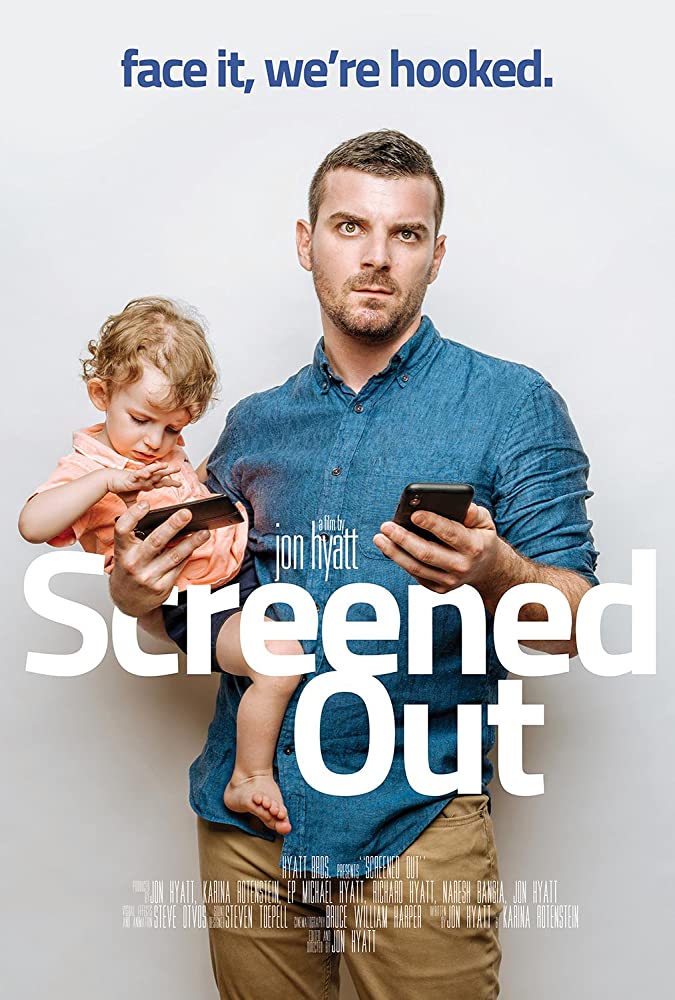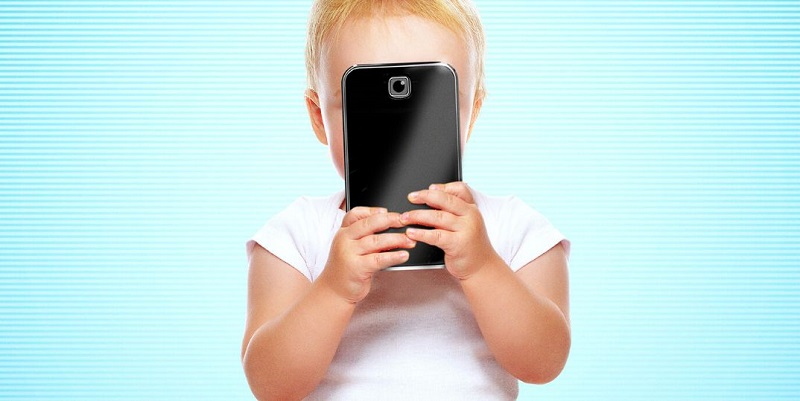As most of the globe has been on lockdown due to the current pandemic, some may be beginning to wonder if too much screen time is bad for us. In fact, many experts were already concerned about the effects of screen time on the developing adolescent brain long before we were all stuck in the house. In Screened Out, filmmaker Jon Hyatt does a deep dive into these very questions in an effort to educate a generation who is glued to their smartphones about screen addiction so they can make the best choices for themselves and their families.

At some point, everyone has complained about someone being on their phone, and while that is often considered rude in today’s world, it’s becoming the norm and even socially acceptable. For example, many families have elected to ban cell phones at the dinner table in order to improve communication and alleviate distractions. But Hyatt, who actually went as far as deactivating his social media profiles as an experiment in screen addiction, warns that’s just not enough and parents need to be extremely cautious when it comes to their children and the overexposure to screens.
Throughout the film, various child psychology experts, especially those dealing with adolescents, argue that social media acts the same as a substance when it comes to brain activity. They compare the euphoric feeling a teen gets from checking social media for likes and validation to that of ingesting alcohol and other mind-altering substances in the sense that it triggers the same dopamine receptor in our brains. They then go on to argue that screen addiction can have the same effect as drug addiction, including withdrawal, depression, anxiety, and even suicide.
Hyatt cites the spike in suicide rates around 2012, right around the time billions of people from around the world had joined Facebook and started facing what psychologists refer to as social compression. Where people are comparing their lives and realities to that of the highlight reel that is someone’s Instagram. Hyatt even interviews teenagers, who admit that it’s stressful for them to have to keep up a perfect appearance on social media when that may not be the reality.
Doctors also warn parents of the dangers of excessive video gaming, insisting this can also have the same negative effects on the developing young mind, cause social difficulties later in life, and potentially hinder meaningful relationships. Hyatt cites a horrific incident where two parents neglected their child in a car while they were playing video games for over 24 hours. As a result, the baby did not survive. However, according to the film, the judge was lenient when sentencing the couple due to the fact that the parents were addicts and needed psychological help.
Alas, due to COVID-19, many students are facing more screen time than ever as their classes have gone completely virtual. One point the film neglects to address is the difference between using screens for work or another fulfilling purpose, and mindless validation scrolling on social media or video game playing.
Even more interesting, Hyatt also interviews educators at a school in Silicon Valley where they do not allow children under the age of 14 to engage with any type of screen whatsoever. The fascinating thing about the school is that many of the students are the children of tech executives, who seemingly agree that being screened out at an early age isn’t beneficial. Which is kind of ironic, because one would think that they would want their kids to be as tech-savvy as possible in order to prepare them for the future. But perhaps they have a better understanding of the behavioral algorithms behind the platforms in which employs them.

As with all technology, it can be used for good or bad. But there is no denying that using technology to spread awareness in an effort to make the world a better place would leave one feeling depressed. In fact, it would likely have the opposite effect.
At the end of the day, it really is a case by case basis. Meaning, we need to instill in our youth a sense of awareness so they can be mindful of how technology affects their psyche personally. Obviously, if social media makes you feel sad or puts you in a bad mood, put down the phone and go on a nice nature hike. But if you are using technology to make a positive influence in the world without any noticeable personal repercussion, by all means, please continue. But just remain mindful.
Screened Out hits Amazon Prime, YouTube, and Vudu on May 26th, and it’s a must-watch, especially if you have or are planning to have children. To pre-order on iTunes, click here.

